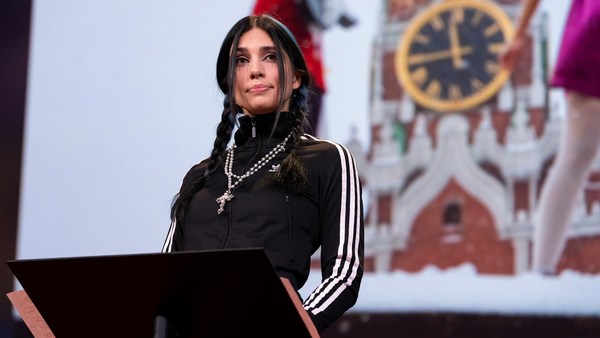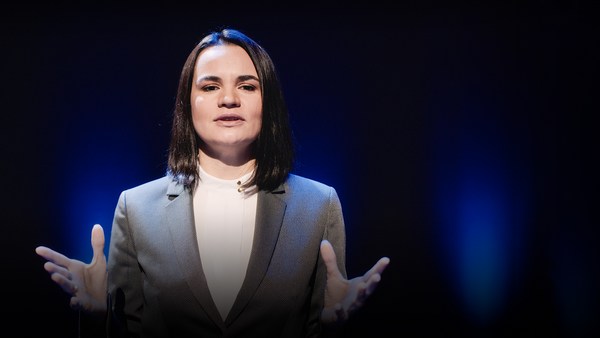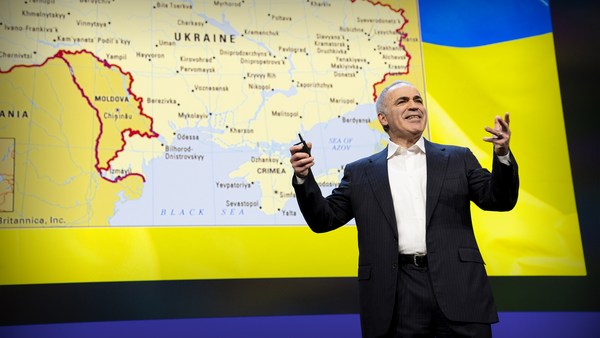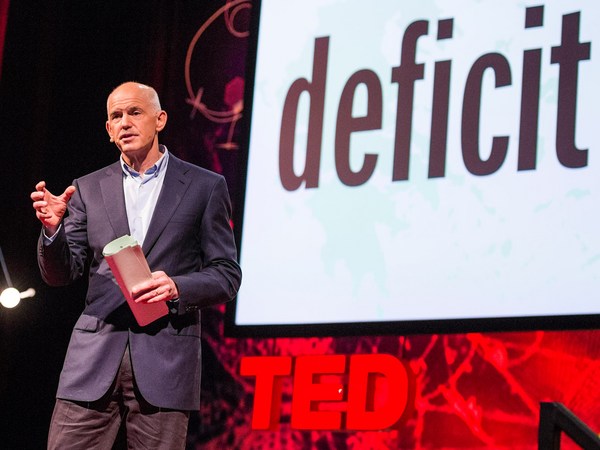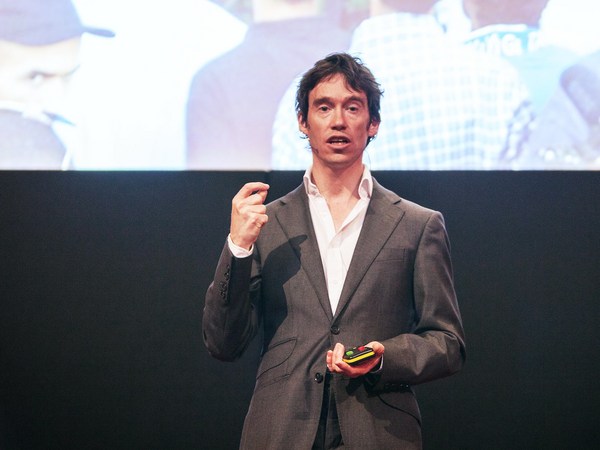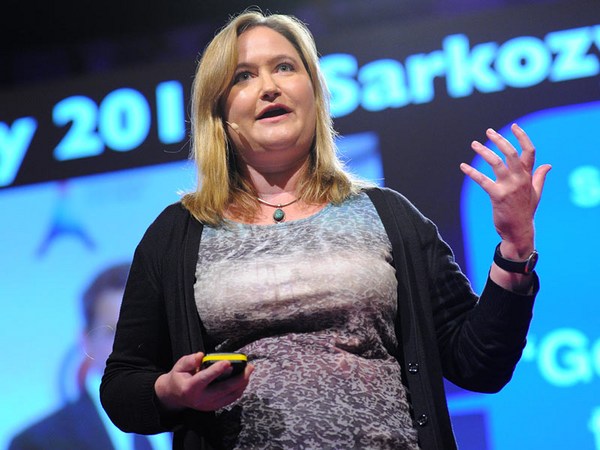This week, on Sunday, Alexey Navalny -- politician, opposition leader and my father -- will have been in prison for 1,000 days. Almost three years.
I miss him every single day. I'm scared that my father won't be able to come to my graduation ceremony or walk me down the aisle at my wedding. But if being my father's daughter has taught me anything, it is to never succumb to fear and sadness. And I've experienced both, fear and sadness.
One of the most fearful moments of my short yet eventful life was on August 20, 2020. That day, I woke up in my childhood bedroom in Moscow. Like many of us do first thing in the morning, I rolled over to the bedside table and reached for my phone. I looked at the screen and was surprised at how many notifications I had. Twitter, Instagram, Telegram, you name it. My feeling of confusion started to slowly turn into a sense of worry. Alexey Navalny had suddenly fell unconscious on the plane and was taken to the emergency room at the hospital. My heart dropped to my feet. Without blinking an eye, I jumped out of my bed and ran to my parents' bedroom to tell my mom that I was able to look after my younger brother, Zahar, while she was away. But by then, she was already at the airport.
The plane on which my father had collapsed had to make an emergency landing in a city in Siberia. And after two days, an international uproar and my mom fighting tooth and nail to get him out of there, he was finally transferred to the clinic called Charité in Berlin, Germany. There, at the special laboratory of the German armed forces, they confirmed that he was indeed poisoned by a military-grade nerve agent of the Novichok group. He spent three weeks in a coma. And after months and months of recovery, he went back to work with the Anti-Corruption Foundation.
(Applause)
Founded over a decade ago, the Anti-Corruption Foundation has been doing incredibly important and dangerous work of spreading information and exposing the corrupt nature of the Russian government. We've produced over 500 investigations, helped organize hundreds of protests in Moscow and run election campaigns. We provide free legal assistance to those who, like my father, have been imprisoned for peacefully protesting the regime. We've created a sanctions list of 6,000 government officials, propagandists, entrepreneurs, various artists and more people who've supported and worked with Putin over the years. And the list works. Governments all over the world have used our list when imposing sanctions.
(Applause)
Because Putin and his associates, they live lavishly. They own condos in Miami and penthouses in Manhattan. They own vineyards in France and villas on Lake Como. They buy enormous yachts and country houses with gold toilets. They buy private jets to send their corgis to dog competitions. Yes, you heard that right. In 2016, the Anti-Corruption Foundation had released an investigation that Russia's deputy prime minister owned an undeclared jet valued at over 60 million dollars and used it primarily to send his dogs to international competitions. All of this while most citizens in Russia scramble and live on wages of under 200 dollars.
According to independent polling done by the ACF sociology center, only 15 percent of the population believe in Putin's propaganda. That means that 85 percent of the population either opposes the regime, doesn’t think it really affects them, don’t follow politics or simply don't know what to believe. This is why we ask our supporters, who are ordinary citizens, to spread our investigations and news content to their family members, friends and loved ones, because we know that if we can reach those who are on the fence or persuade those who have been brainwashed by Putin, we'll get that much closer to changing the regime.
One of my favorite chants my dad used to do during the 2011 to 2014 protests in Moscow was: “One for all and all for one.” This is a phrase that we're all familiar with, but most of us often forget. Dictators like Putin want us to forget it. They want us to forget how strong we can be when we work together. They want us to forget how much we can accomplish when we stand side by side. Because it is that much harder for any dictator to fight an international united front than each of us individually.
Now you might think to yourself, "Dasha, why should I care about this? Geographically, United States is quite far away from Putin. Is he really that threatening to us, or are you just trying to raise unnecessary alarm?" And to that, I want to respond with another thought. If we don't stand up for them now, then who will be left to stand up for us later?
(Applause)
Cyber attacks, spreading of propaganda and disinformation, meddling in the elections, bribing your government officials. This has been and is continuing to happen. The West, Europe and the United States have tried talking to Putin. And where did that get us? The illegal annexation of Crimea in 2014 and now a full-scale war in Ukraine. Tyrants and dictators don't want diplomatic relations. All they want is power.
I often catch myself thinking how I shouldn't have gone back to school that fall. I should have stayed with my family while my dad was recovering. I should have gotten on that plane with him back to Russia and hugged him before he got unlawfully and outrageously arrested at the airport. That day when he went back, on January 17, 2021, thousands of people showed up at the airport to support him.
When I was younger, I didn't really understand how my dad could be so optimistic about the future. He was constantly threatened, arrested, followed. Our family would be followed by men dressed in all black, wearing baseball caps and a ridiculous-looking fanny packs when we would go to the cinema.
(Laughter)
And after a while, my dad decided to make a game out of it. Whenever we would get on the subway, we waited until the last moment and quickly got out of the car right before the doors closed, so that FSB agents were left behind.
(Laughter)
A unique childhood experience.
(Laughter)
I think one of the main reasons for my dad's success is that he has always been incredible at channeling his emotions into hard work and motivation. He wouldn’t get sad, and he was certainly never afraid. Instead, he would get fired up. Fired up because he saw a group of ex-KGB corrupt criminals come into power and destroy his country. Seeing that motivated him so much more to work that much harder to stop them. And that is what makes a true patriot.
Of course I understand that, first and foremost, the change needs to come from within the country. And that is precisely why, knowing all the risks, my dad went back to Russia 996 days ago. Because he simply couldn't not go back. My dad is an incredibly courageous and selfless man, and I can only dream to be like him one day. He doesn't run or hide. And unlike my father, Putin is a coward. A coward --
(Applause)
A coward who, with his cronies, can no longer hide from the consequences of what they have done to my country and democracy around the world. And you, everyone who's sitting here today or watching this online, you can help. Now. You, unlike millions [and] millions of those who have been threatened and murdered and silenced in Russia, you have a voice. Please don't take your freedom for granted.
Russia is my home. It’s where I was born. It’s where I grew up. It’s where I became the person I am today. And I will promise you that I will continue to speak up, tell the truth, and I will continue fighting until Russia is a free and democratic country.
Thank you very much, free Alexey Navalny.
(Applause)
